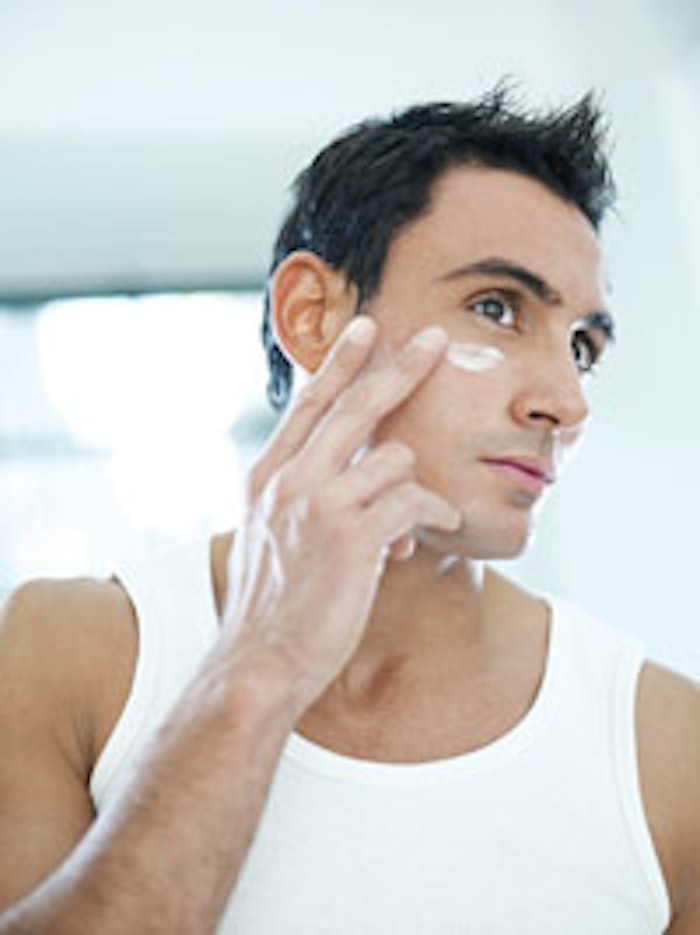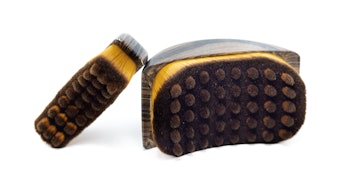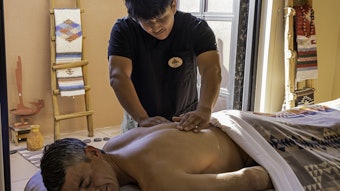
According to The American Society of Aesthetic Plastic Surgeons, men underwent more than 800,000 cosmetic procedures in 2011. That is a 121% increase since 1997, when the organization first started tracking these numbers. Additionally, the market research organization The NPD Group, said the U.S. men’s skin care market grew 11% in dollar sales in 2011. That is an impressive gain. The group also states that 75% of men 18 and older are not yet using skin care products. This presents a unique opportunity to not only increase your client base and revenue from the sales of products and treatments, but also, more importantly, make an enormous impact on a demographic that is at great risk for skin cancer and other dermal conditions, which result from not properly protecting and caring for the skin. It is possible to make a difference, but men can be challenging clients. Diving into the physical and psychological differences between women and men can uncover the key to attracting and maintaining a strong base of loyal male clients.
What makes men different
The differences in men’s skin compared to women’s skin are important to understand when considering males within the skin care market. Hormones play a significant role. In males, androgens are the dominant hormones and continually increase throughout puberty before leveling off in the early 20s. Higher levels of the androgen testosterone are responsible for increased hair growth and sebum production, which can lead to more acne.
In addition to more oil production, collagen, blood vessels and facial hair, male skin is better oxygenated and hydrated, and 25% thicker than that of women. These characteristics serve men well to mask the visible signs of aging, considering that they do not begin to show their age as early as women, making aging skin easier for them to ignore. This partially explains why men do not see the importance of proper skin care as early in life as women.
The fact that men are typically reticent to use sunscreen or to care for their skin at all is compounded by the fact that they also tend to spend more time outdoors in employment and leisure activities. This can be a challenging combination. Knowing that men need guidance to understand the importance of caring for their skin means that breaking down any psychological boundaries is the place to start.
The psychology
During the past years of economic anemia, many highly qualified men have found themselves vying for the same job openings as a sea of younger talent. This has definitely spurred men to seek out treatments and products to maintain a youthful appearance. Additionally, imagery in advertising, fashion and film that has depicted the “ideal” woman as young, thin and beautiful has now turned to men, focusing on the “ideal” male image. Younger men are paying more attention to their hair, skin and general appearance. Although comparing yourself to any manufactured vision of perfection is pointless and demeaning, a positive cultural shift that has occurred as a result is the increased use of moisturizer with sunscreen and antioxidants. Because of this, the door to the possibility of sparing this younger generation from increasing instances of basal cell, squamous cell and melanoma skin cancers in the future has been opened.
American men live an average of 73 years. Unfortunately, the group that is most likely to develop skin cancers is made up of older men who grew up with macho cultural stereotypes, typically making them less open to discussions about skin care and sunscreen. Helping this section of the population is more about appealing to their sense of self-preservation, not their vanity. For these clients, it is important to differentiate between the use of daily sun protection and the use of typical age-control products that are focused on women and younger men.
Problem-solvers by nature, men often think that skin care is only needed if there is a problem to solve, such as breakouts, acne-scarring or overt wrinkling. Helping them to understand that there are problems, such as skin cancer, that are inherent to not using proper sunscreen and skin care may increase their acceptance of professional products.
Translating skin care
There are no breakthroughs in skin science and health that will be beneficial for men if they resist buying quality skin care products. Loss of vitality and a youthful appearance is a big issue for most of the male population. Well-advertised prescription drugs designed to help them overcome a number of common illnesses and personal challenges have opened up dialogue between men and their physicians. This can lead to more discussions and referrals to skin care professionals, so work to strengthen your relationships with physicians in your area who specialize in men’s issues and wellness.
Also, be sure to leverage the fact that men tend to be born fixers with their love of telling tales of their accomplishments. Use this tendency to encourage those who already use skin care products to speak with friends who have not yet discovered the positive benefits of having a basic skin care regimen.
Simple, multipurpose, easy-to-follow, control
Encouraging men to try products may be the first hurdle, but getting them to use them correctly and consistently is an additional challenge. Compliance, especially in young men, can be difficult, and keeping regimens simple with only a few products can help. Target your marketing to men’s need for simple, multipurpose products that provide visible results through an easy-to-follow routine. Let them know that they are in control of their own skin health and can make the right choices in what, for many, is a new and overwhelming personal care area.
By taking the time to educate male clients about their role in their own skin health, product choice and use, along with providing painless purchasing opportunities, you can build long-term relationships that add to your bottom line.
Richard Linder is the CEO of PCA Skin. Before joining the company, he held executive positions at Greenwich Street Partners, the St. Louis Economic Development Council and KPMG in Zurich, Switzerland. Linder also serves on the board of directors of the National Holistic Institute.










